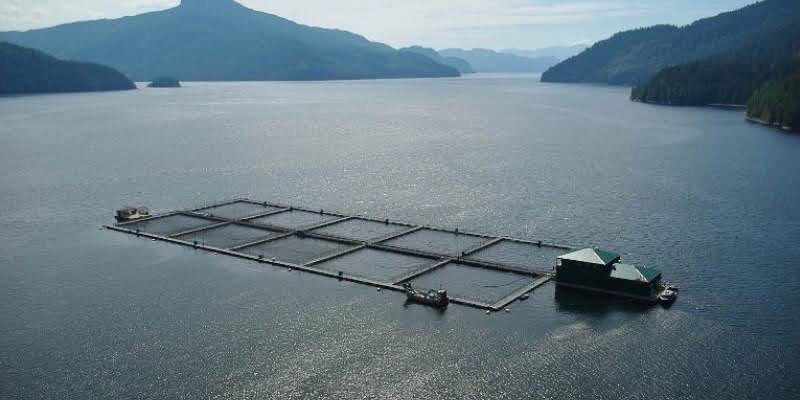Canada to move ahead with a Federal Aquaculture Act
Canada remains the world’s only major farmed seafood producing country without modern national legislation specifically designed to govern a responsible and sustainable aquaculture industry
By Samantha McLeod
SeaWestNews
Fisheries Ministers across Canada have decided to move towards a Federal Aquaculture Act that will govern a sustainable seafood farming industry already generating an estimated $5.16 billion in economic activity and 25,000 full-time jobs for Canadians
Aquaculture was a key topic of conversation at this week’s Canadian Council of Fisheries and Aquaculture Ministers (CCFAM) meeting in St. John’s, Newfoundland and Labrador.
“Ministers directed officials to develop federal legislation with limited scope that respects Federal, provincial and territorial jurisdiction and provides greater clarity to the sector. Such federal legislation would continue to ensure that Canada’s aquaculture industry is a global leader in producing high-quality aquaculture products in an environmentally sustainable manner,” a government communique said.
The Canadian Aquaculture Industry Alliance (CAIA) welcomed the support of the Canadian Council of Fisheries and Aquaculture Ministers to advance the legislative development process for an Aquaculture Act in Canada.
“The timely development and passage of a federal Aquaculture Act is the most important and overriding need for the sustainable and competitive growth of aquaculture in Canada,” explained Timothy Kennedy, CAIA President & CEO.
“There is such incredible opportunity for this young and innovative sector in Canada. This important support from Ministers is very much appreciated and will provide a fresh look at seafood farming in Canada.
“Canada remains the world’s only major farmed seafood producing country without modern national legislation specifically designed to govern a responsible and sustainable aquaculture industry.
“With a supportive policy and regulatory environment focused on innovation, economic growth and sustainability for our sector, our industry is ready to seize this opportunity, creating new middle-class jobs and growing our economy,” said Kennedy.
The push for a Federal Aquaculture Act, which has been embraced by Canadian seafood farmers, was mooted by the Campbell River Chamber of Commerce.
Similar proposed legislation has also been introduced in the United States. The Advancing the Quality and Understanding of American Aquaculture (AQUAA) Act is aimed to increase the United States’ involvement and production of healthy, sustainable, and affordable seafood.
The recent Agri-food Report from Canada’s Economic Strategy Table also pushed for a Federal Aquaculture Act citing the potential for the sector to nearly double production from 200,565 tonnes in 2016 to 381,900 tonnes in 2028 to meet rising global demand.
The federal report found the current complex regulatory framework stifled growth and opportunity for the aquaculture sector and called for an economic growth approach for the sector via a new Federal Aquaculture Act.
“Aquaculture is the fastest-growing sector of the agriculture industry and a Federal Aquaculture Act will provide a simplified regulatory path to grow our businesses, especially in coastal communities,” said John Paul Fraser, the Executive Director of the B.C. Salmon Farmers Association.
“Such legislation will codify a pathway to establish aquaculture as a legitimate caretaker of Canada’s aquatic resources,” said Fraser, after thousands of B.C. businesses in British Columbia lent their support for a Federal Aquaculture Act at the BC Chamber of Commerce Annual General Meeting, last Spring.
Here are some highlights of the resolution entitled Realizing The Potential Of Aquaculture in Canada; which is recommending that the Federal government:
- Through regional engagement, develop a Federal Aquaculture Act, to establish national environmental standards and clarify industry responsibilities;
- Ensure that Federal consultation with First Nations clarifies and is beneficial to resolving concerns and provides a framework that meets the needs of the industry for timely decisions;
- Support efforts to build public confidence in aquaculture management and place a focus on science and solution; and
- Create a truly modern federal management regime that is science based, agile, adaptable and focused on performance outcomes that ensure highest standards of sustainability and protection.
Farming and fish processing activities generate an estimated $5.16 billion in economic activity, $2 billion in GDP, and 25,000 full-time jobs for Canadians earning an estimated $1.16 billion in wages in 2016.
When the full value-chain of economic activity from the seafood farm to your plate is considered, Canadian farmed seafood generated a total of over $7.3 billion in economic activity throughout the economy, $3.75 billion in GDP, and $2.18 billion dollars in wages for almost 54,000 Canadian workers in 2016.
More than 40 Indigenous communities are directly or indirectly involved in farming seafood across Canada.
RELATED LINKS:
Federal Aquaculture Act – Aquaculture’s net gains unite rivals in US
First Nations communities benefit from aquaculture
Alaska hatchery pink salmon imperil wild stocks

